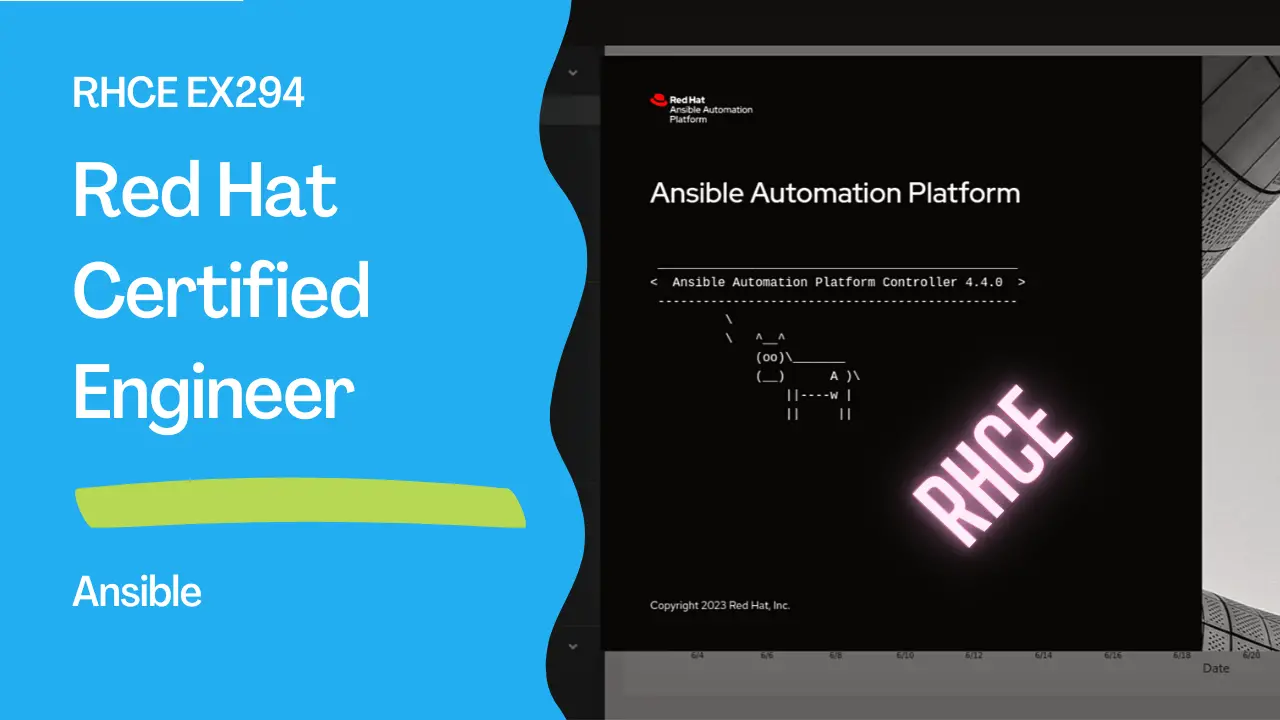Mastering RHCE: A Comprehensive Guide to Red Hat Certified Engineer EX294 Exam
Elevate Your Career with Red Hat Certified Engineer EX294 worldwide recognized certification

Introduction
The Red Hat Certified Engineer (RHCE) exam is a significant milestone for IT professionals looking to excel in Linux system administration. RHCE, offered by Red Hat, validates your ability to manage, configure, and maintain Red Hat Enterprise Linux systems effectively. This article provides a detailed overview of the study points you need to master to succeed in the RHCE exam.
RHCE Study Points
1. Proficiency as a Red Hat Certified System Administrator
Before pursuing the RHCE certification, it’s essential to be well-versed in the responsibilities of a Red Hat Certified System Administrator (RHCSA). This knowledge forms the foundation for the advanced concepts you’ll encounter as an RHCE candidate.
2. Understanding and Using Essential Tools
RHCE candidates should be comfortable with the essential tools that are vital for Linux system administration, including tools for text editing, package management, and system monitoring. Mastery of these tools is crucial for efficient system management.
3. Operating Running Systems
You need to demonstrate the ability to manage running systems efficiently. This includes controlling services, configuring system startup and shutdown processes, and managing kernel modules.
4. Configuring Local Storage
Local storage management involves configuring disks, partitions, and logical volumes. You should be adept at handling storage devices and file systems to ensure optimal performance and data integrity.
5. Creating and Configuring File Systems
This RHCE competency area involves creating, mounting, unmounting, and maintaining file systems. Knowledge of the Filesystem Hierarchy Standard (FHS) is essential.
6. Deploying, Configuring, and Maintaining Systems
To excel as an RHCE, you must know how to deploy, configure, and maintain systems efficiently. This includes understanding system initialization and managing system services.
7. Managing Users and Groups
User and group management is a crucial aspect of system administration. RHCE candidates should be skilled in creating, modifying, and deleting user accounts and groups, and setting appropriate permissions.
8. Managing Security
Security is paramount in Linux system administration. RHCE candidates should understand the intricacies of security, including setting up firewalls, SELinux policies, and access controls.
9. Understanding Core Components of Ansible
Ansible is an essential tool for automation in Linux administration. RHCE candidates need to grasp the core components of Ansible, including inventories, modules, variables, facts, loops, conditional tasks, plays, handling task failures, playbooks, and configuration files.
10. Using Roles and Ansible Content Collections
Roles and Ansible Content Collections enable modular and scalable automation. You should be able to create, install, and use roles, Content Collections, and integrate them into playbooks to streamline your automation tasks.
11. Installing and Configuring an Ansible Control Node
RHCE candidates need to set up and configure the Ansible control node, including installing required packages, creating an inventory file, and configuring the Ansible environment.
12. Configuring Ansible Managed Nodes
Configuring the managed nodes involves creating and distributing SSH keys, configuring privilege escalation, and deploying files to the managed nodes. Understanding these tasks is essential for effective automation.
13. Creating Ansible Plays and Playbooks
You must know how to create plays and playbooks that automate standard RHCSA tasks, using Ansible modules that work with software packages, services, firewall rules, file systems, storage devices, file content, archiving, task scheduling, security, users, and groups.
14. Managing Content
Managing content in Ansible involves creating and using templates for customized configuration files and using Ansible Vault to protect sensitive data.
Links
Conclusion
Becoming an RHCE involves mastering a wide range of skills, from Linux system administration fundamentals to advanced Ansible automation. The RHCE certification is highly regarded in the IT industry and can open doors to exciting career opportunities, increased earning potential, and recognition as an expert in Linux system administration. By diligently studying and practicing the RHCE study points outlined in this article, you’ll be well-prepared to tackle the RHCE exam and excel in your Linux administration career. Remember, persistence and hands-on experience are key to success in the world of Red Hat Certified Engineers.
Subscribe to the YouTube channel, Medium, and Website, X (formerly Twitter) to not miss the next episode of the Ansible Pilot.Academy
Learn the Ansible automation technology with some real-life examples in my
My book Ansible By Examples: 200+ Automation Examples For Linux and Windows System Administrator and DevOps
Donate
Want to keep this project going? Please donate








